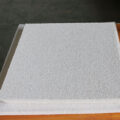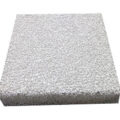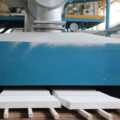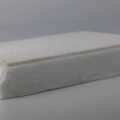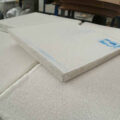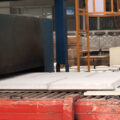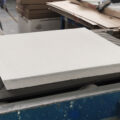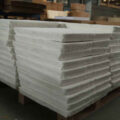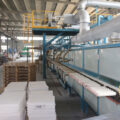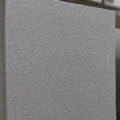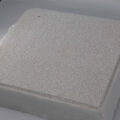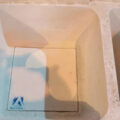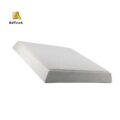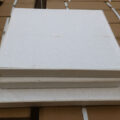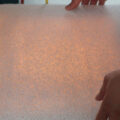Filtration of molten metals with ceramic foam filters is a proven method in order to remove the inclusions. AdTech provides a high-temperature resistant foam filter that does not contaminate the melt and does not result in degradation of desirable characteristics in the final metal product.
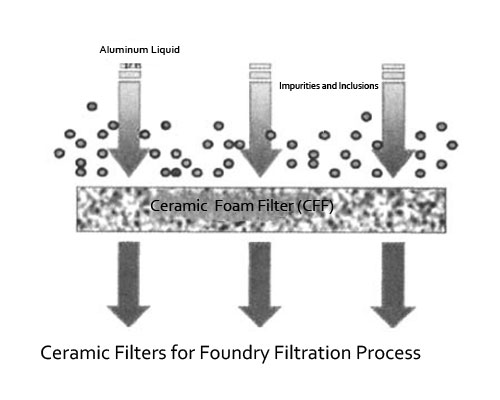
Molten metal, particularly molten aluminum, in practice generally contains entrained solids that are deleterious to the final cast metal product. These entrained solids appear as inclusions in the final cast product after the molten metal is solidified and cause the final product to be less ductile or to have poor bright finishing and anodizing characteristics. The inclusions may originate from several sources. For example, the inclusions may originate from surface oxide films which become broken up and are entrained in the resultant molten metal. In addition, the inclusions may originate as insoluble impurities, such as carbides, borides, and others, or eroded furnace and trough refractories.
If these inclusions are not removed cleanly, they will form large defects in the aluminum alloy. They often cause stress concentration and cause the casting to be scrapped. It not only affects the mechanical properties, cutting performance, and corrosion resistance of the casting, but also causes porosity in the casting.
It is naturally highly desirable to devise an advanced filter for use in removing or minimizing entrained solids from the final cast product, particularly with respect to molten aluminum and especially when the resultant metal is to be used in a decorative product, such as decorative trim or sheet made from Aluminum Alloy.
Filtration with Ceramic Foam Filters is known to be highly useful in filtering molten metal, particularly molten aluminum. The ceramic foam filter has considerable high temperature resistance so that it can be used on a variety of molten metals and so that the structure thereof is resistant to degradation under the severe conditions of use associated with filtration of molten metal.

